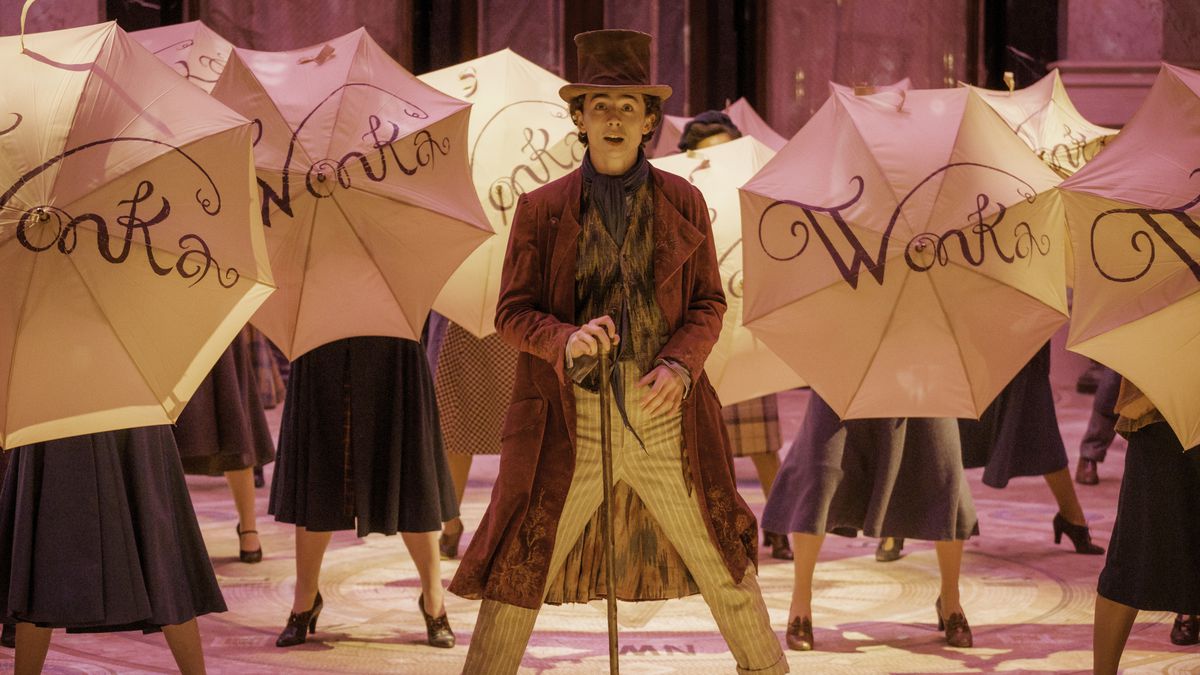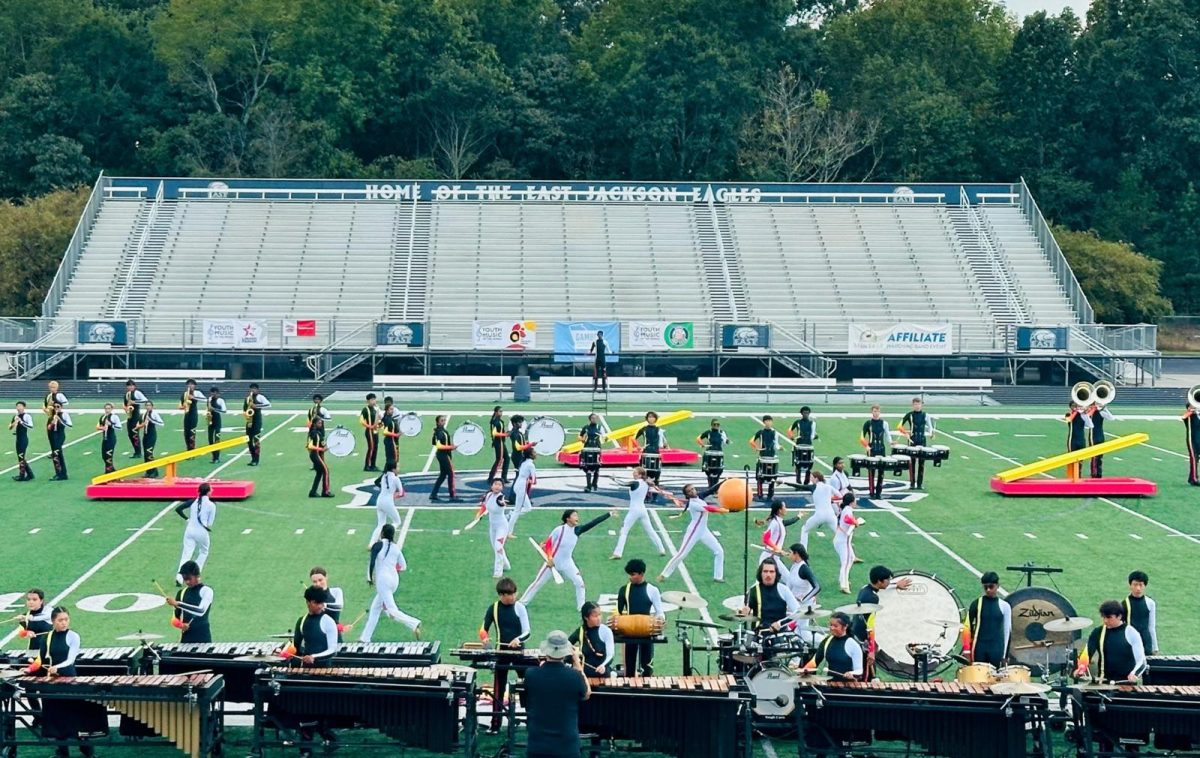The name “Wonka” conjures up a whirlwind of images: rivers of chocolate, fizzy lifting drinks, singing Oompa Loompas and, of course, the chocolatier Willy Wonka himself. This timeless tale, both in print and on screen, has captivated countless generations with its enchanting narrative. However, “Wonka,” the latest installment to showcase the whimsical world of Willy Wonka and his chocolate factory, unfortunately falls flat on multiple fronts and leaves audiences with a lackluster musical experience that struggles to capture the charm of its predecessors.
One of the glaring issues throughout the film is the songs, as they seem disconnected from the overall narrative. This can detract from the viewer’s immersion in the story.
“I felt like the songs were kind of random,” Lambert junior Eric Pham said. “They didn’t really have much of a purpose and had little to do with what was going on most of the time.”
Songs in a movie are intended to serve a purpose beyond mere auditory enjoyment. They are carefully chosen to enhance the story, evoke emotions and create a more immersive and engaging cinematic experience, contributing significantly to the storytelling. When songs feel random or disconnected, as with “Wonka,” it can detract from the film’s ability to establish a cohesive and impactful narrative. The lack of memorable tunes robs the movie of a crucial element that could have elevated its overall impact.
The villains in “Wonka” are another disappointment. Ranging from an innkeeper pair to a trio of female chocolate cartel bosses, the antagonists are cartoonish and lack any real sense of danger.
“I found it hard to watch the entire movie with interest,” Lambert sophomore Ethan Huh noted. “The villains didn’t really seem scary or threatening to any extent, and that made it boring to watch.”
A genuine sense of menace is crucial in elevating the stakes of a movie, as it creates a palpable tension that engages the audience emotionally. When villains lack a convincing threat, as noted by Huh, the narrative loses a vital element that compels viewers to invest in the characters’ struggles. Without a compelling source of conflict, the story may struggle to maintain suspense and fail to evoke emotional responses from the audience. In such cases, the lack of a formidable antagonist can lead to a disconnect, making it challenging for viewers to sustain interest in the unfolding events of the film.
While the film attempts to inject elements of danger, the execution falls prey to formulaic screenwriting. Wonka’s encounters with adversity are resolved conveniently, diminishing the tension and leaving audiences with a sense of predictability.
“The film overall was predictable,” Lambert sophomore Joshua Suh said. “There were a lot of moments where I felt like they could’ve tried a little harder to be creative rather than falling back on common tropes we’ve seen time and time again.”
Suh’s sentiment is reminiscent of a broader issue prevalent in “Wonka,” where the film, much like its cinematic counterparts, succumbs to the pitfalls of lazy screenwriting and clichés. His observation about predictability echoes a tendency in the industry, where filmmakers often opt for the safety of familiar tropes rather than striving for originality. In “Wonka,” this reliance on the familiar detracts from the potential for a truly innovative and memorable cinematic experience.
In an unexpected twist, the creators of “Wonka” have managed the seemingly impossible: crafting a boring Wonka film that fails to capture the magic and wonder of its iconic predecessor. This lackluster musical extravaganza leaves audiences longing for the genuine charm and imaginative storytelling that defined the original Willy Wonka tale.















